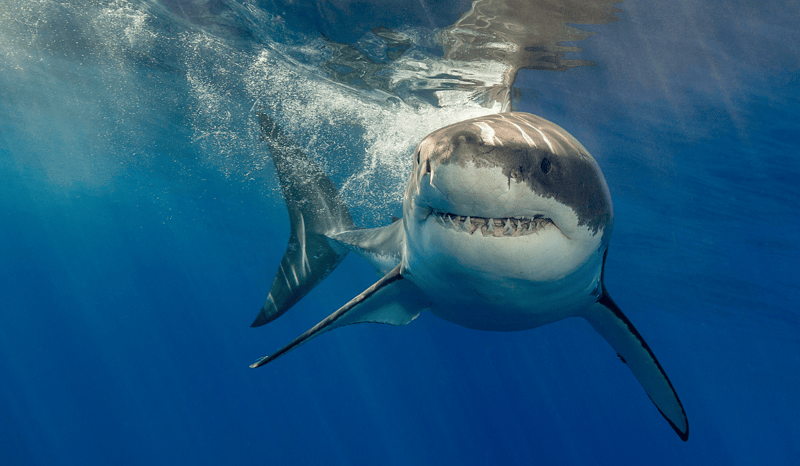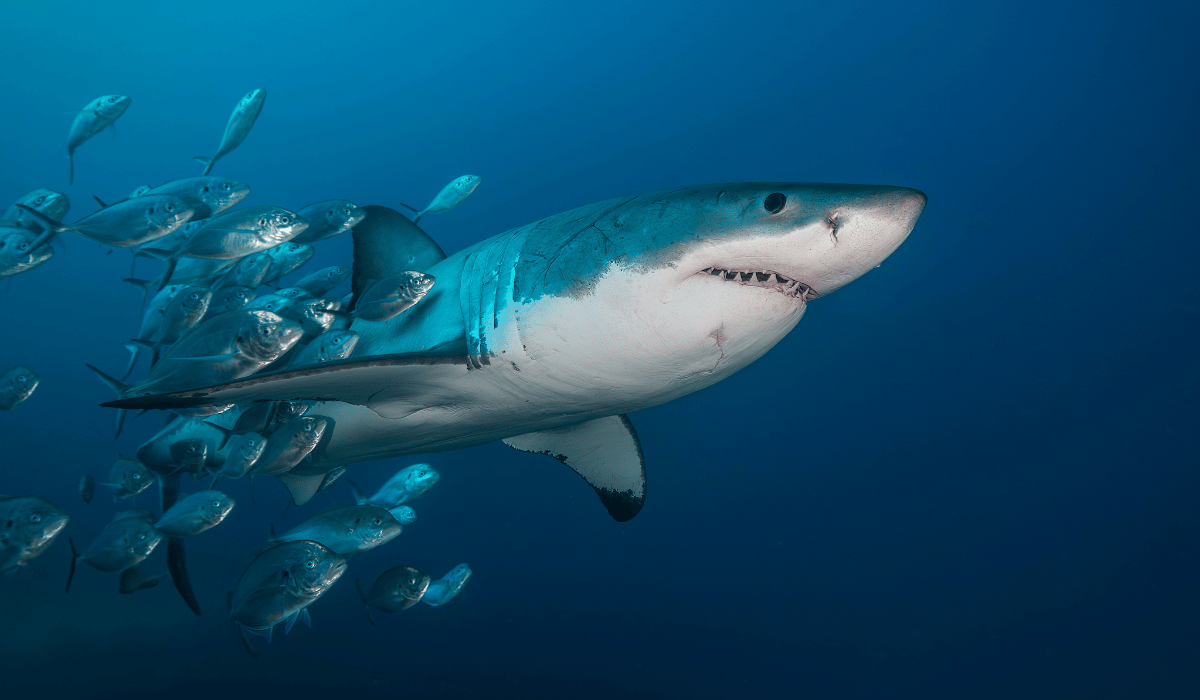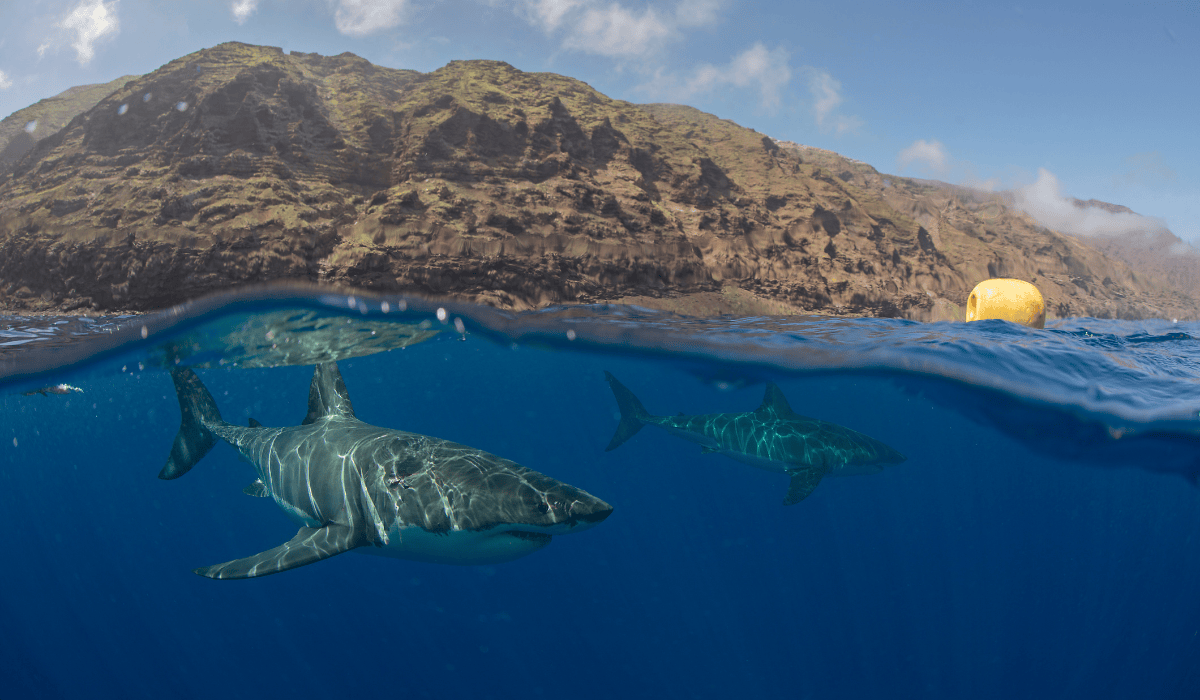
Discover jaw-dropping great white shark facts just in time for Shark Week. Learn why they don’t survive in captivity, how climate change and bycatch threaten their survival, and what you can do to help protect them.
Shark Week is here, and it’s the perfect time to celebrate one of the most misunderstood predators of the sea: the great white shark. These powerful animals aren’t just stars of scary movies—they’re crucial players in marine ecosystems, facing serious threats from humans and climate change.
So let’s set the record straight and dive into some jaw-some great white shark facts that’ll have you hooked.
What Is Shark Week?
Shark Week is a weeklong television event dedicated to all things sharks—especially the science, conservation, and sometimes, the fear factor. Launched in 1988 by the Discovery Channel, Shark Week has become a pop culture phenomenon and the longest-running cable TV programming event in history. It’s a unique blend of education and entertainment that shines a spotlight on these fascinating ocean predators.
When Is Shark Week?
Shark Week usually airs in late July or early August on the Discovery Channel, though the specific dates vary each year. In 2025, Shark Week is expected to begin on Sunday, July 20, so get ready for seven full days of shark-filled content and conversation.
1. Great White Sharks Are Bigger Than You Think
Most adult great whites grow to about 13–16 feet long, but some have been recorded over 20 feet—that’s longer than a minibus! These ocean giants can weigh more than 4,000 pounds and have up to 300 serrated teeth built for tearing through prey.
2. They’re Not the Villains You’ve Been Told About
Despite what Hollywood films have portrayed, great white sharks aren’t mindless killers. Most shark bites on humans are mistakes: surfers and swimmers often resemble seals from below, leading to accidental encounters.

3. Great Whites Don’t Survive in Captivity
Great white sharks do not thrive in captivity. Multiple aquariums have attempted to keep them over the years, but nearly all efforts failed. Some sharks died within days, while others were released due to deteriorating health. These highly migratory, wide-ranging animals suffer in enclosed environments, proving that the ocean—not a tank—is their only true home.
4. They’re Climate Change Survivors... For Now
As the climate crisis warms our oceans, great white sharks are being driven into new territories. Rising temperatures and shifting prey patterns are altering their behavior—and may be putting previously unaffected wildlife at risk.
5. They’re Victims of the Fishing Industry
Great white sharks often fall victim to bycatch, accidentally snagged in commercial fishing nets and lines meant for other species. These unintentional deaths are devastating, especially since great whites are slow to reproduce and can’t easily rebound from population loss.
6. They Can Smell a Drop of Blood from Miles Away
Great whites have an incredible sense of smell—they can detect one drop of blood in 25 gallons of water and pick up scents from miles away. Their specialized sensory system also lets them detect electrical signals given off by prey.
7. Great Whites Are Not Cold-Blooded
They’re one of the few shark species that are partially warm-blooded, allowing them to raise their internal temperature and move faster, hunt smarter, and survive in cooler waters.
8. They’re Migratory Superstars
Great whites travel thousands of miles each year. Some cross from California to Hawaii and back again. Others swim between continents, navigating vast ocean distances to feed and breed.

9. Shark Pups Are Born to Be Fierce
Great white shark pups are born over 4 feet long and are immediately independent. No parenting here. They’re self-sufficient hunters from day one.
Bonus Fact: The coastal waters off of Long Island, NY is currently the only known great white shark pupping ground in the United States!
10. They Keep the Ocean in Balance
As apex predators, great white sharks play a vital role in maintaining the balance of marine ecosystems. By influencing the behavior and distribution of other species, they help support a healthy and biodiverse ocean.
This Shark Week, Let’s Protect Great White Sharks Before It’s Too Late
Shark Week isn’t just about dramatic footage. It’s about helping people understand and protect one of the ocean’s most vital species. Between climate change, overfishing, bycatch, and failed attempts to keep them in captivity, great white sharks face real, urgent threats. But we can all do our part to help protect them.
By supporting marine conservation, eating less or eliminating fish and seafood, and fighting climate change, we can ensure these iconic animals continue to roam the oceans—not disappear from them.
Ready to get started? Sign up for our FREE Animal Champions community to take action for animals today.